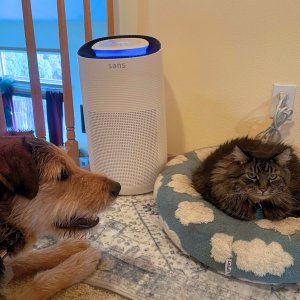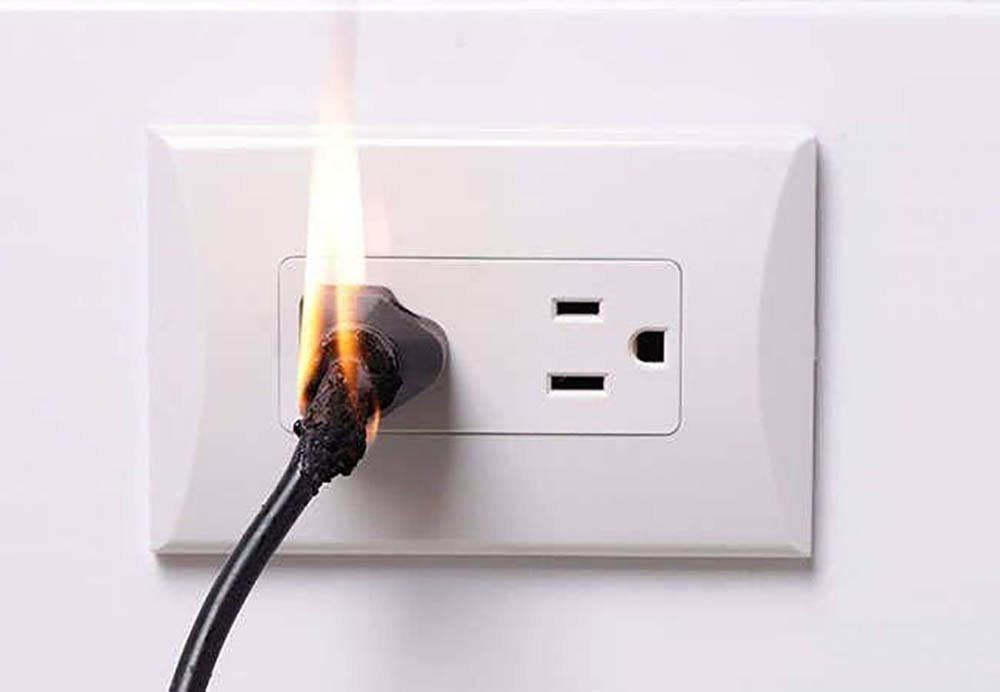

We may earn revenue from the products available on this page and participate in affiliate programs. Learn More ›
Nearly half of all home heating fires take place between December and February, according to the National Fire Protection Association. Surprisingly, fireplaces are not causing the heaviest losses. Between 2018 and 2022, space heaters and heating stoves caused 46 percent of the fires but 76 percent of deaths related to home heating.
Since space heaters can be an integral part of an efficient home heating plan, space heater safety is a vital priority this winter to mitigate these fire risks. So how do you avoid a house fire? Know the most common–and costly–mistakes people make with portable heaters, and don’t repeat them in your own home.
1. DON’T crowd your space heater.
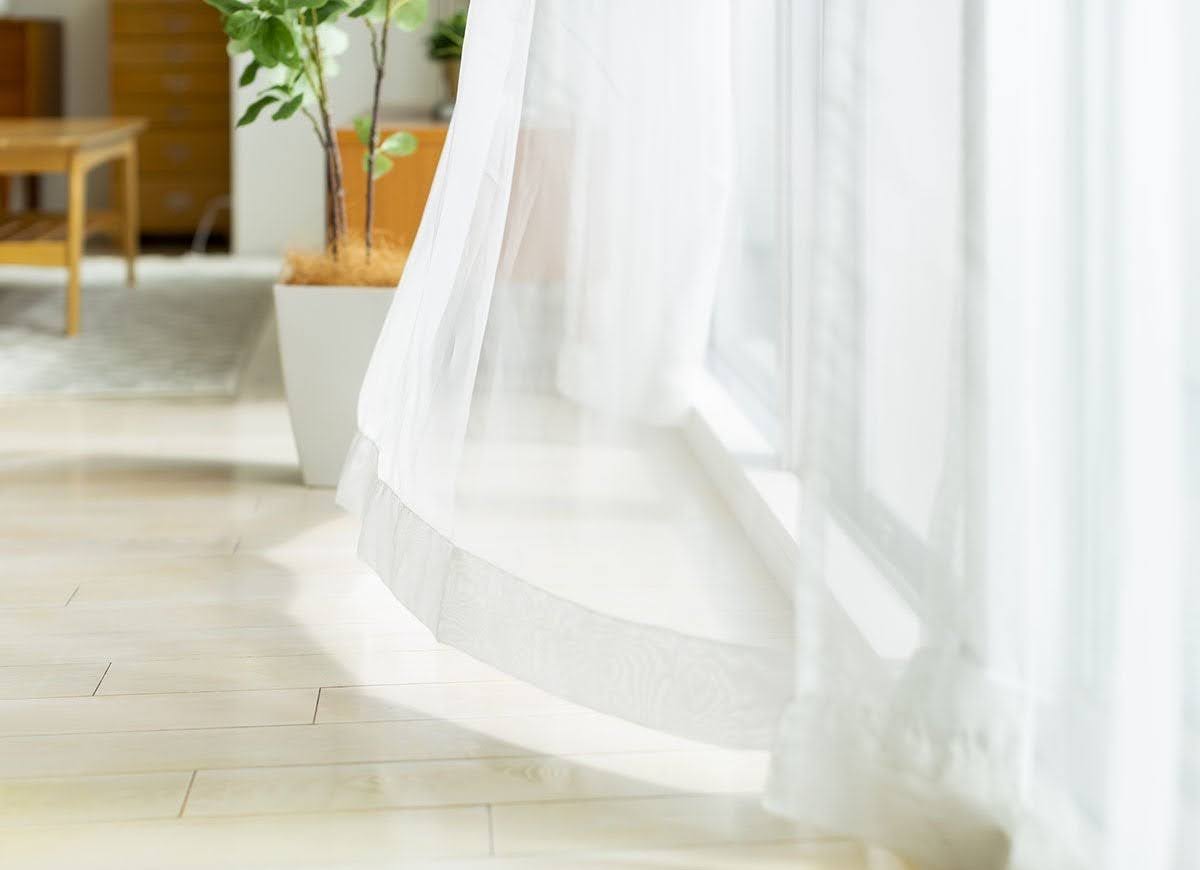
Give your space heater a wide berth, particularly around textiles. Space heaters and fabrics of any type are a deadly combo. “Keep your space heater at least 3 to 5 feet away from any fabric items such as furniture, bedding, curtains, rugs or anything flammable,” says Todd Tripp, general contractor and home improvement expert with JustAnswer. In fact, space heater fires are most commonly caused by some sort of fabric, including clothing, upholstered furniture, or even mattresses, that comes in contact with or sits too close to the heater.
2. DON’T place the heater on furniture.
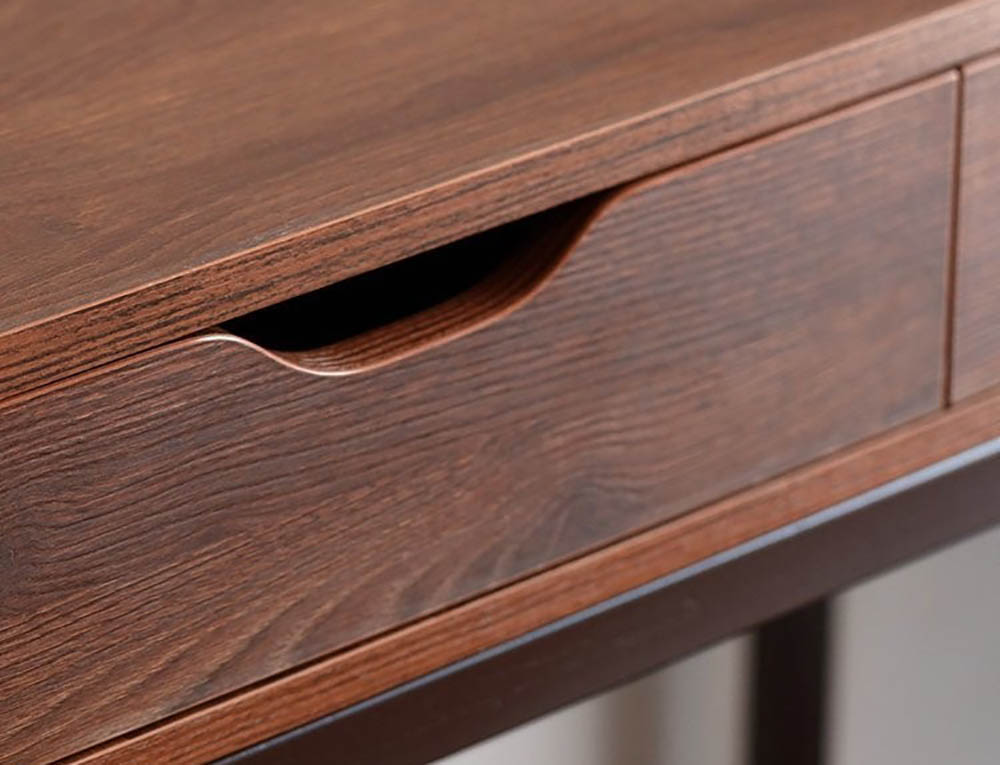
Don’t set your space heater on top of a dresser, table, or other piece of furniture. An accidental bump or a curious cat could knock the heater to the floor, leading to a burn injury or a fire hazard. “Space heaters should not be placed on furniture or countertops, even if your countertop is a flat surface. That placement could pose a variety of risks to your home,” says Mollie Treloar, heating expert at Tractor Supply. The furniture or countertop could also be damaged, especially if the surface is not heat-resistant. “Additionally, elevated surfaces like furniture or countertops often offer more restricted airflow than the floor does, which may lead to overheating,” Treloar adds.
“If you don’t have any hard surface flooring, [place] your heater on a stable, non-flammable surface… [such as] ceramic tiles or a heat resistant mat.”
Mollie Treloar, heating expert at Tractor Supply
3. DON’T put the heater on a carpet or area rug.
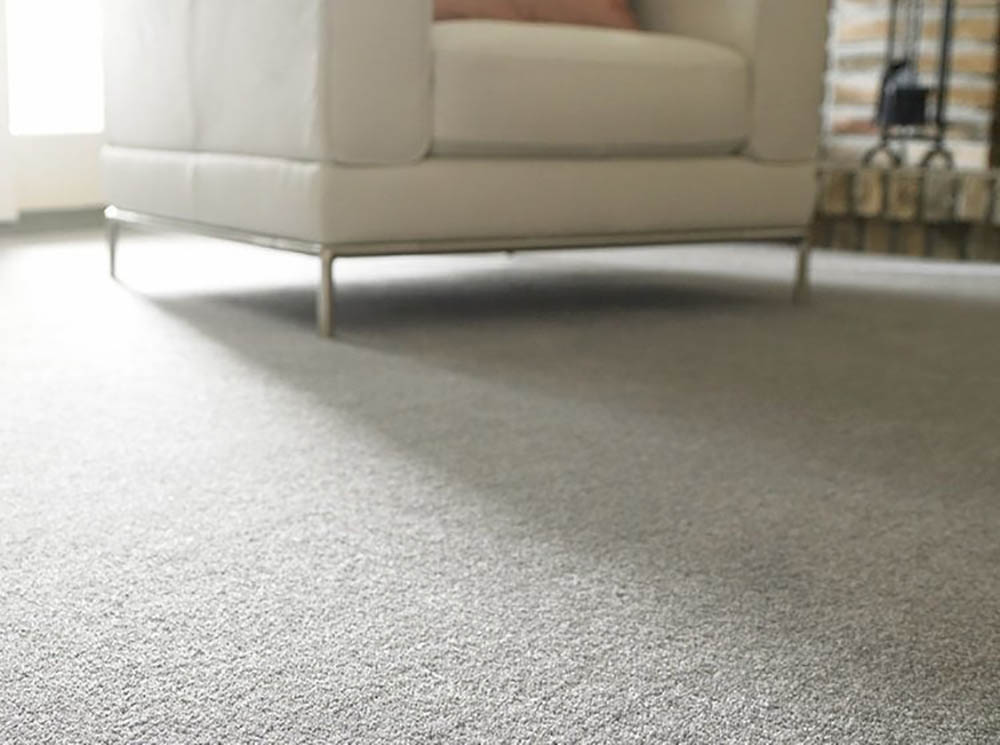
Not only must your space heater sit on the floor, but it’s safe only when the floor is a hard surface. Never place a space heater on top of an area rug or carpeting. They tend to trap heat and could ignite if they get warm enough. “Having carpeted floors can make using a space heater tricky, but that doesn’t mean it’s not possible,” Treloar says. “If you don’t have any hard surface flooring, then placing your heater on a stable, non-flammable surface is the best bet for safety. This could be ceramic tiles or a heat resistant mat. Just make sure the surface is bigger than the heater’s base, and set it on a level spot to prevent tipping.”
4. And NEVER run cords under the rug.

It’s a common scenario: You want the space heater close enough to chase away the chill, but the nearest electrical outlet is all the way across the room. You consider running the space heater’s cord underneath an area rug. Don’t do it! Running the cord under the rug introduces the much graver danger of fire. “The rug covering the cord can trap any heat generated by the cord during use and increase risk of overheating and fires,” Treloar says. “The rug fibers can also cause damage to the cord over time and lead to malfunction and spark risk. Also, the cord covered by the rug can pose a major trip hazard to your family and pets as they would not be able to see it while walking.”
5. DON’T use an extension cord.
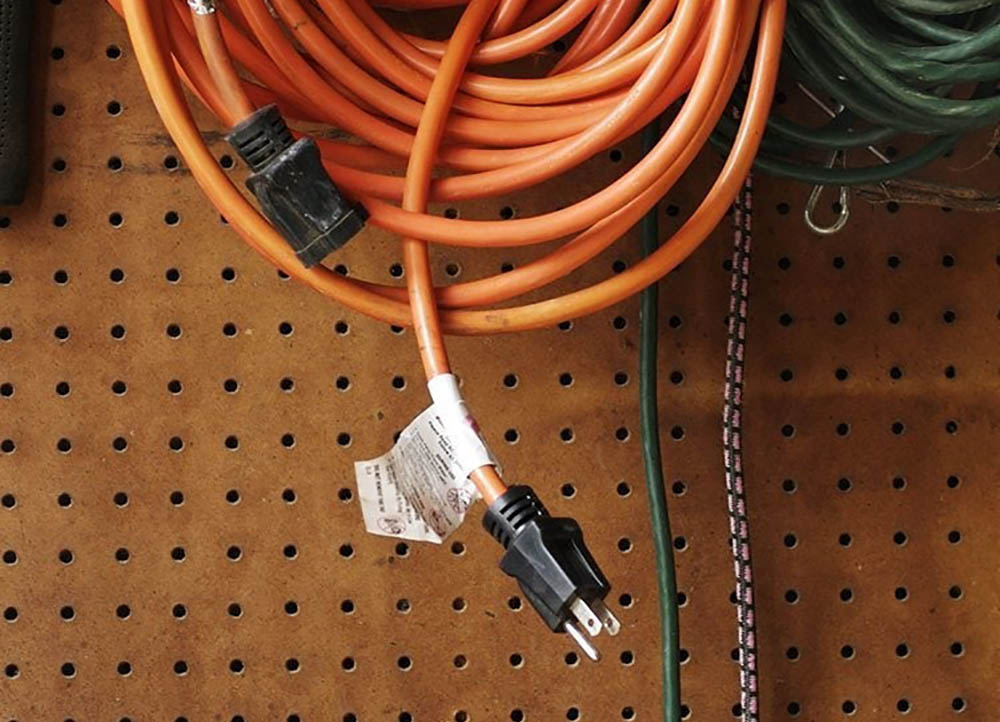
As with any appliance or device that generates heat, never plug a space heater into an extension cord or a power strip. The high power demand of the space heater can cause the extension cord or power strip to short-circuit or overheat, potentially causing a fire. Instead, always plug your space heater directly into a wall outlet, and don’t plug anything else into the same outlet while the space heater is running.
6. DON’T leave pets or kids in the room unattended.
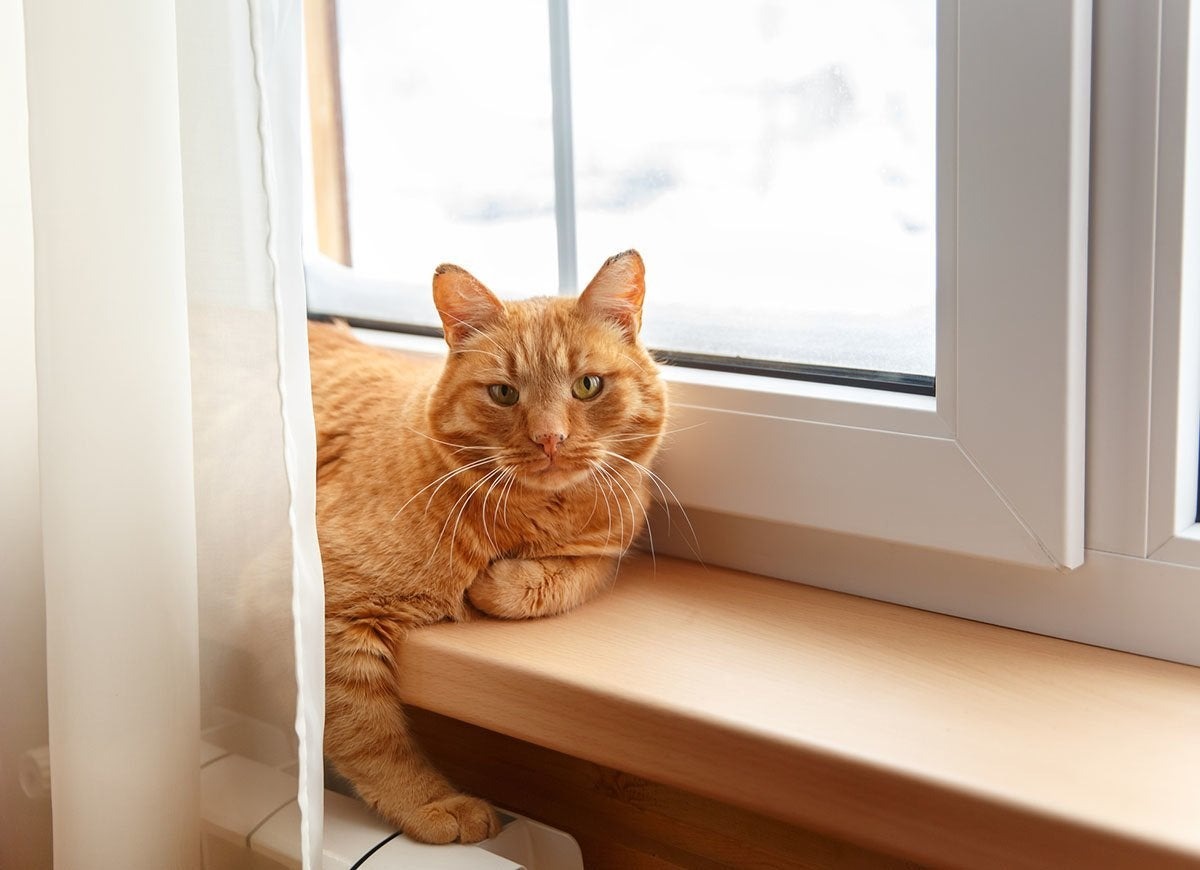
The pleasant warmth of a space heater is like a magnet for cats, but a curious—or chilly—dog may also be attracted. Though they may want to hang out near the device, never leave pets unattended in any room with a running space heater. Turn the space heater off when you leave the room.
7. DON’T expose the heater to moisture.
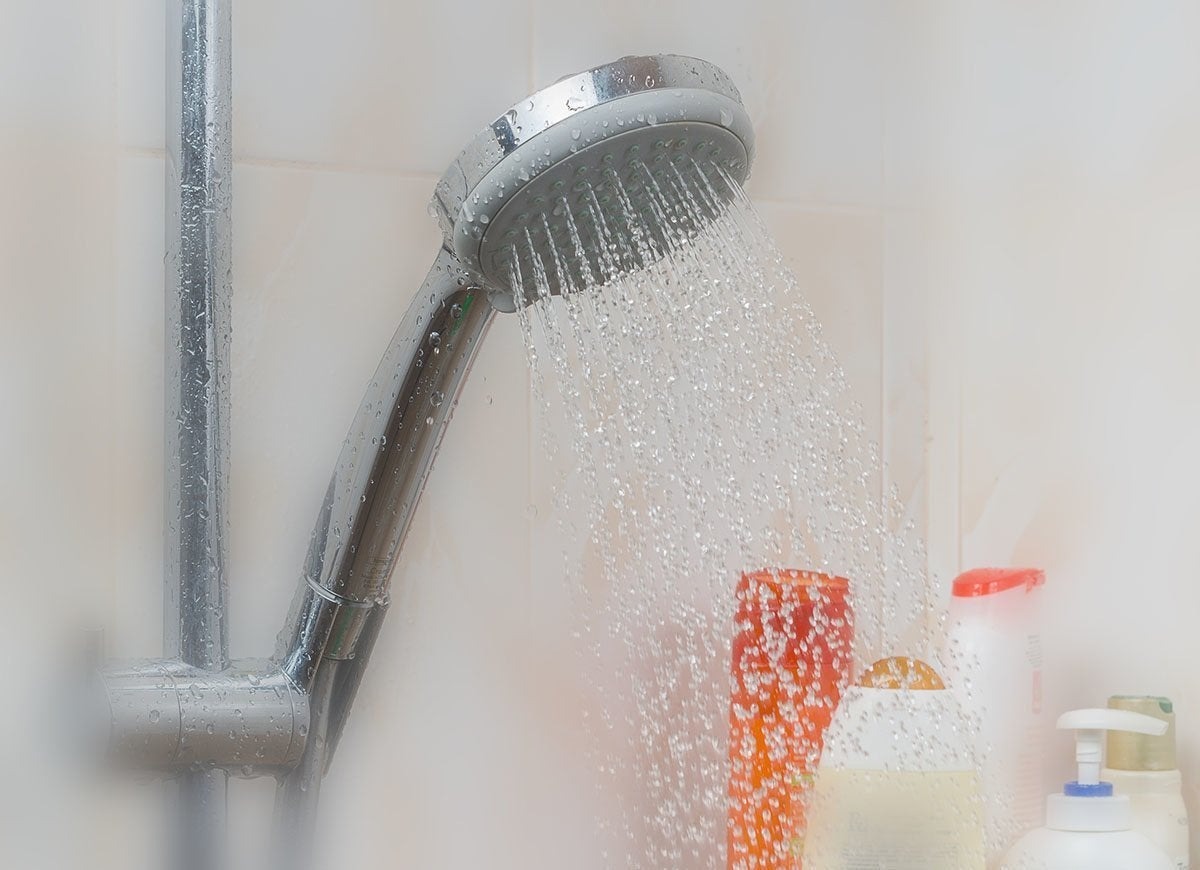
It might be tempting to use a space heater to warm up your bathroom while you shower, but resist the urge. “Because of a bathroom’s increased humidity and proximity to water, you have to take extra precautions with your space heater,” Treloar says. “Take care to use a model specifically designed for the bathroom, and make sure you place your heater far enough away from your sink, shower, or bathtub to eliminate the risk of water damage or splashing.”
8. DON’T run a space heater overnight.

Leaving your space heater running all night long while you sleep is a no-no. “Space heaters need to be respected as a highly flammable appliance,” Tripp says. If the unit overheats, tips over, or short-circuits overnight, a fire could break out while you’re fast asleep. Use the heater to warm up your room before bed, and then switch it off right before you slide between the sheets.
9. DON’T forget to check for certification.
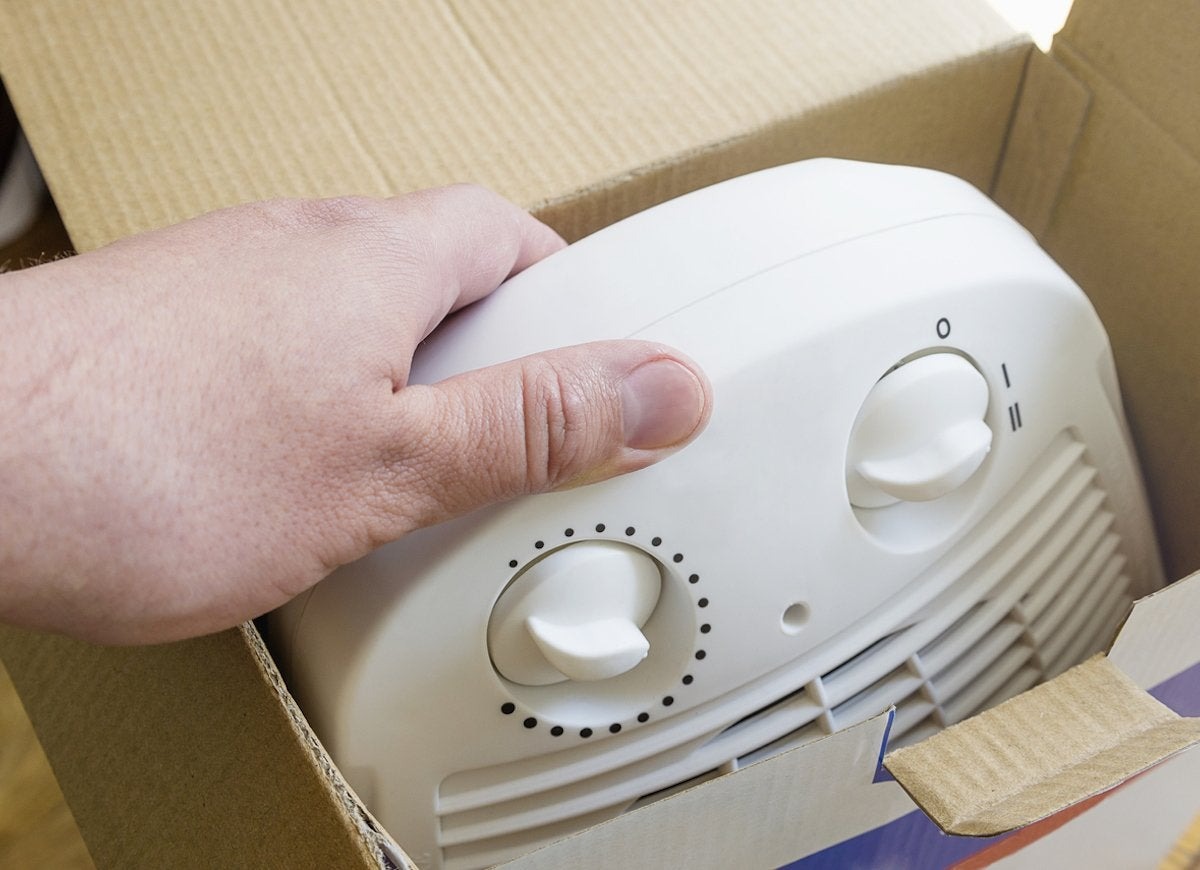
Before buying a space heater, check that it’s been certified. “Space heaters with a UL (Underwriters Laboratory), CSA (Canadian Standards Association), and ETL (Intertek) should only be used,” Tripp says. “Space heaters with one of these certifications have been tested and approved for safety electrically and fire hazards.” Normally, the certification will be indicated on the space heater’s packaging. These organizations perform rigorous tests to ensure that home electronics are as safe as possible.
“Any strange sounds, such as rattling or buzzing, or unusual smells, like burning or electrical odors, are immediate red flags. These could indicate internal damage or potential fire hazards.”
Mollie Treloar, heating expert at Tractor Supply
10. DON’T use a secondhand space heater.
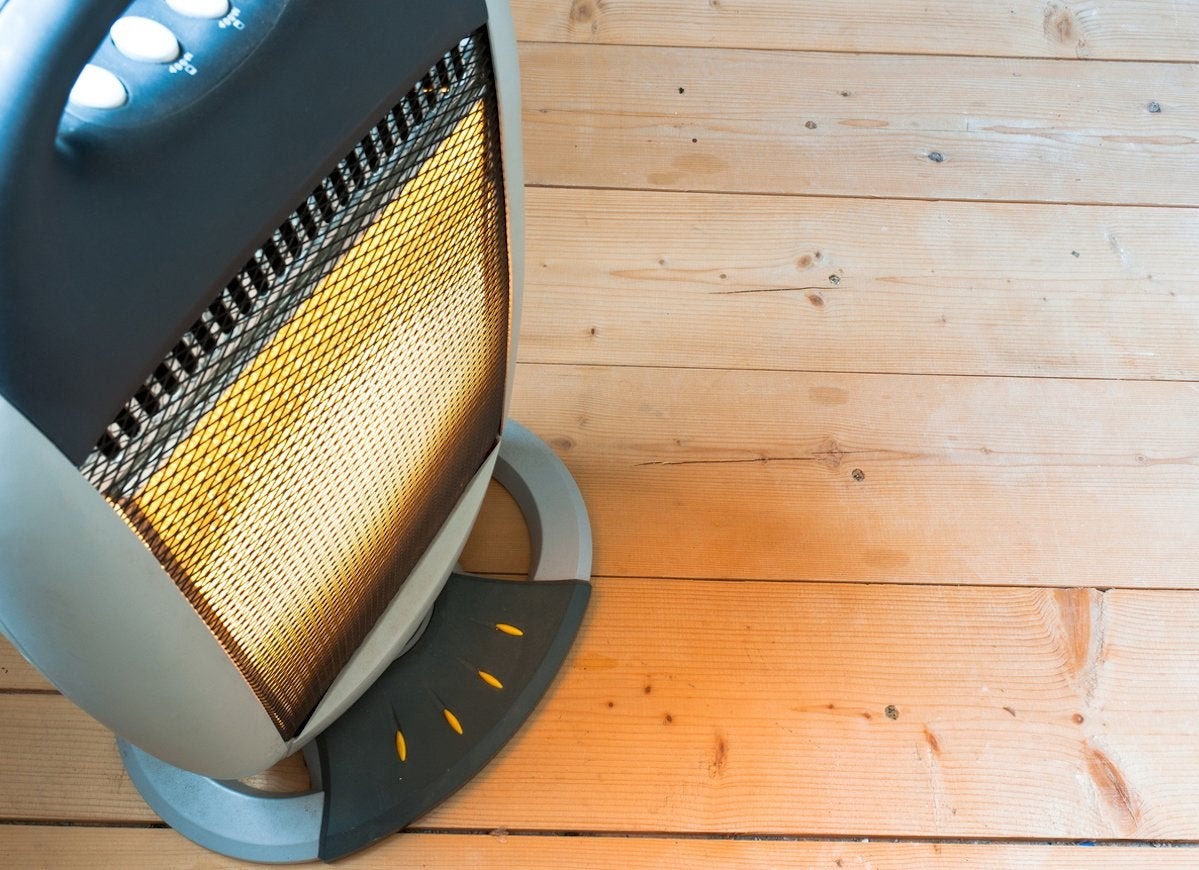
Found a space heater bargain at your local thrift store or neighborhood garage sale? Just walk away. While there are some electronic devices you can get secondhand and use with some safety precautions, space heaters should never be one of them. The certification sticker could be missing or never have existed. The wiring could be frayed, internal parts could be damaged, and it’s nearly impossible to determine how old a space heater is outside of the box. Using old or damaged space heaters is a recipe for disaster.
11. DON’T continue using a space heater when it’s old or damaged.
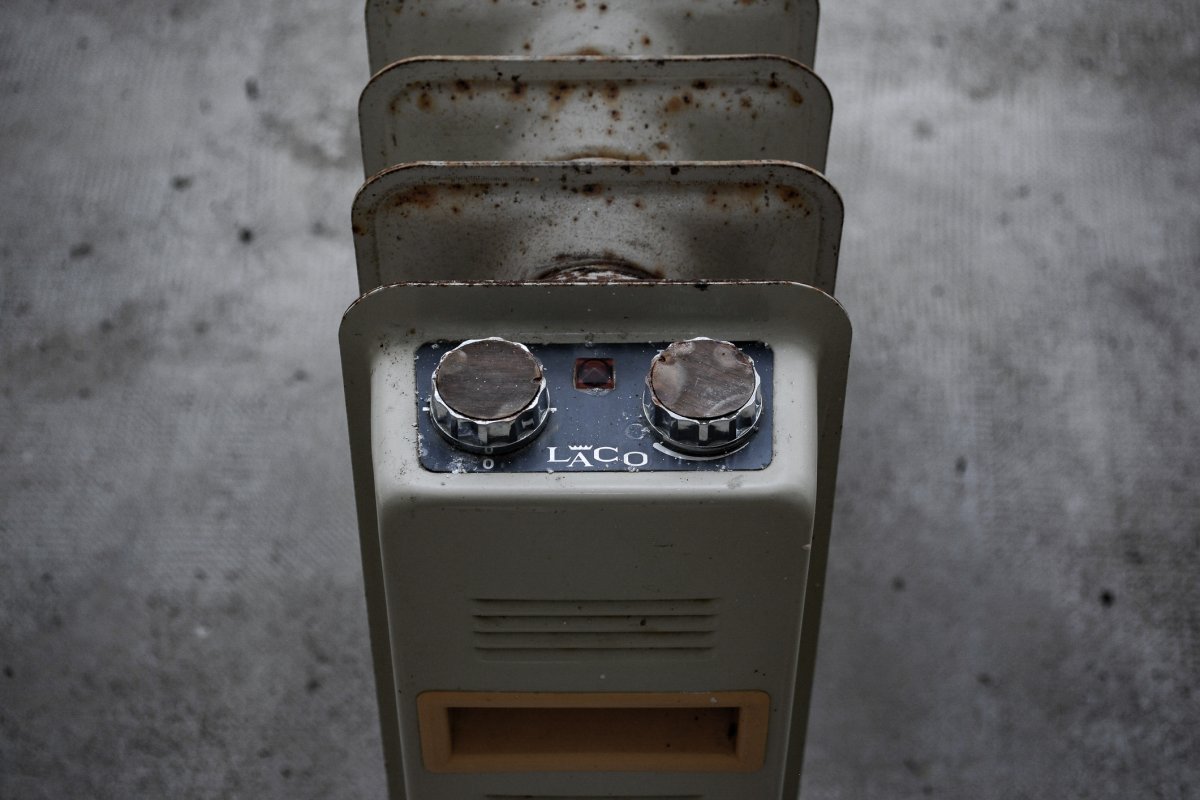
While just about all of today’s space heaters have multiple safety features, including an auto shut-off if the unit gets too hot, tips over, or runs for too long, that’s not true of space heaters made a decade or more ago. “If it’s over 10 years old, it may lack modern safety features and efficiency,” Treloar says. She says that signs the heating elements are wearing out include taking longer to heat up a room or not heating as effectively as the unit used to. Other reasons to look for a replacement: “Any strange sounds, such as rattling or buzzing, or unusual smells, like burning or electrical odors, are immediate red flags. These could indicate internal damage or potential fire hazards. Also, any signs of physical damage, such as cracks in the casing, frayed cords, or scorch marks. These are clear indicators that the heater is no longer safe to use and should be replaced,” she says.
12. NEVER put the space heater in front of a doorway or egress point.
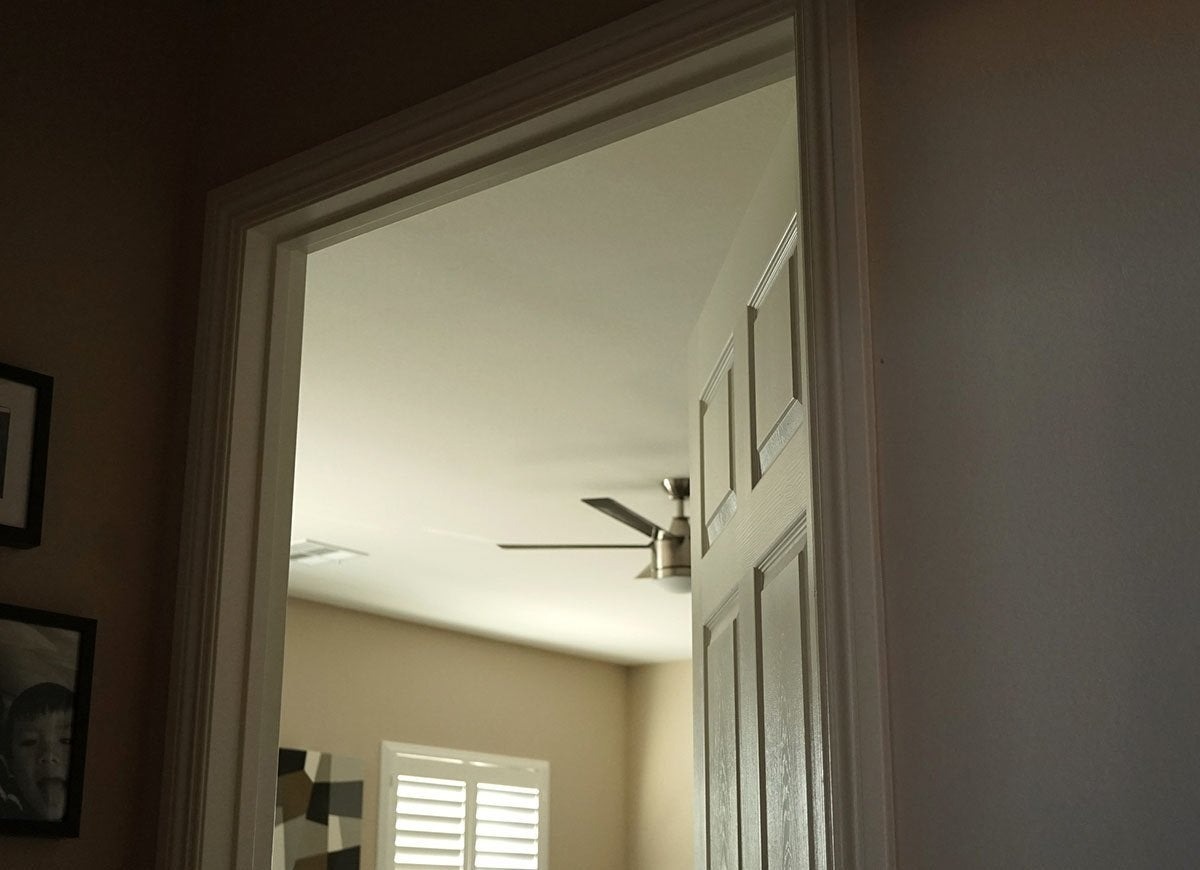
Nothing should ever block the doorway of your bedroom or the route you would need to take from your bed to that doorway in an emergency—especially not something that gets scalding hot. To keep you safe from dangerous trips and tumbles, your space heater needs to be positioned at least a couple of feet to the side of any doorway, path, or high-traffic area of your home.
13. DON’T put things on top of your space heater.

You might think the space heater is the perfect spot to dry those snowy mittens, but you’d be dangerously wrong. “Space heaters are designed to heat spaces, not to dry clothing, and using them for this purpose can pose significant safety risks,” Treloar says. “Clothing that is placed too close to a space heater can overheat and potentially catch fire, especially draping clothing over a space heater to dry it faster. Draping can block air vents and cause the heater to overheat, increasing the likelihood of a malfunction or fire.” The same is true for storing items on top of your heater. “Modern space heaters are built with overheating protection safety features, but these are not foolproof and should not be relied upon if the heater is being used inappropriately.”
14. DON’T run propane space heaters without ventilation.
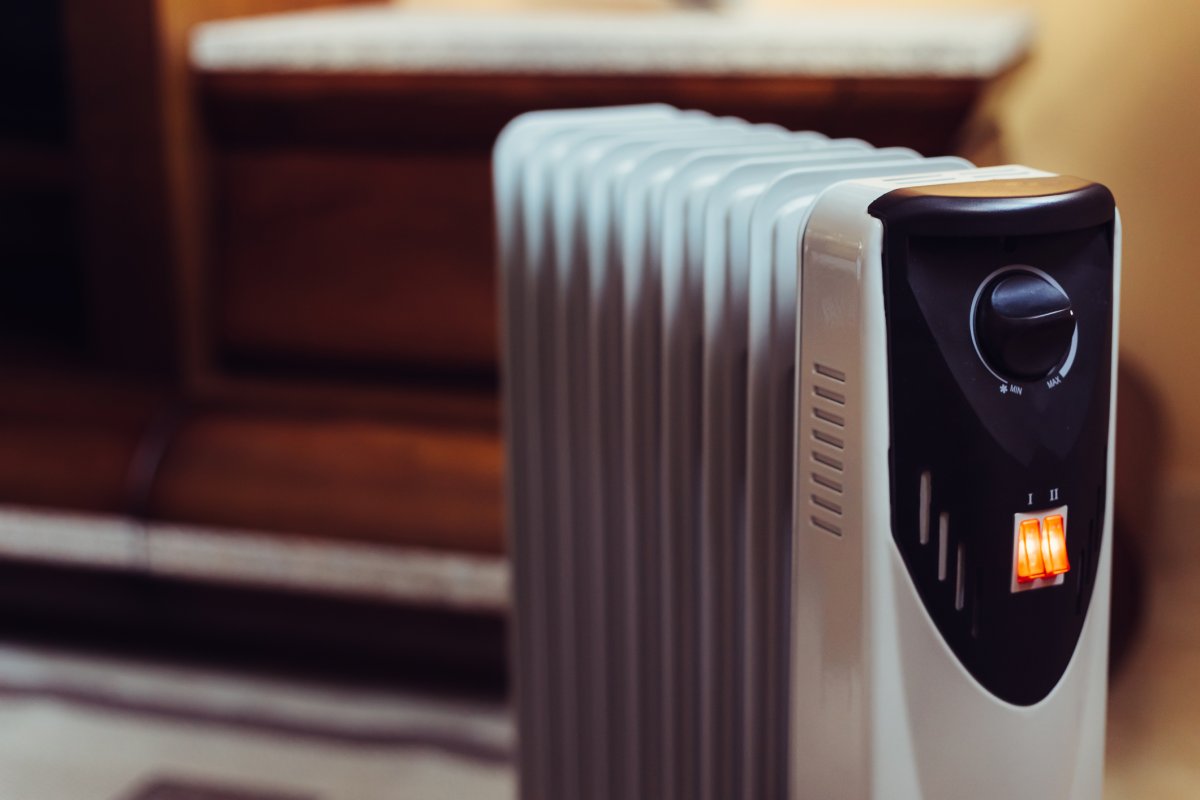
Non-electric space heaters, such as propane space heaters, can release carbon monoxide when in use. To operate these heaters safely, place them in a well-ventilated area or outdoors on a patio. “You should also choose a model equipped with safety features like an oxygen depletion sensor (ODS), which shuts the heater off if oxygen levels fall too low,” Treloar adds. “Finally, when refueling, users should also take care to choose the correct fuel type for their heater and always let the space heater cool before refueling to minimize fire risk.
